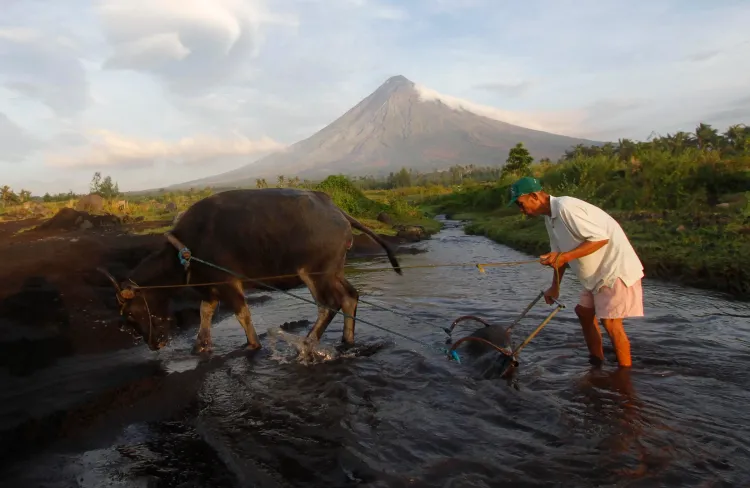Philippines Announces Food Security Crisis to Address Rising Rice Costs

Synopsis
Key Takeaways
- Philippines declares a food security emergency on rice.
- Emergency aims to stabilize unprecedented rice prices.
- Allows release of rice buffer stocks by NFA.
- Rice inflation peaked at 21.4% in December 2023.
- GDP growth fell short of government targets.
Manila, February 3 (NationPress) The Philippine Secretary of Agriculture, Francisco Tiu Laurel, has officially declared a food security emergency concerning rice on Monday to address the unprecedented surge in rice prices across the nation.
"This declaration enables us to distribute rice buffer stocks maintained by the National Food Authority (NFA) to stabilize prices and ensure that rice, a crucial food source for millions, remains available for consumers," Laurel stated.
According to Laurel, this emergency declaration is based on the advice from the National Price Coordinating Council.
As per the Rice Tarrification Law, the Agriculture Secretary has the authority to declare a food security emergency in response to significant price surges.
This declaration empowers the Department of Agriculture to instruct the NFA to release buffer stocks to governmental entities and local government units to mitigate rice prices and shield consumers from further increases.
This move is part of the government's ongoing efforts to lower rice prices.
Laurel noted that the food security emergency will persist until rice prices are under control, as reported by the Xinhua news agency.
In December 2023, rice inflation in the Philippines reached an astonishing 21.4 percent.
The country's Gross Domestic Product (GDP) grew by 5.6 percent in 2024, falling short of the government's target range of 6-6.5 percent, according to the Philippine Statistics Authority (PSA) last week.
"Although (the GDP growth) did not meet our target of 6 to 6.5 percent, we are still the third-fastest growing economy in the region," stated National Economic and Development Authority Undersecretary Rosemarie Edillon.
She remarked that the Philippines encountered several challenges in 2024, including extreme weather conditions, geopolitical conflicts, and weak global demand, mirroring the obstacles faced in 2023.
Edillon highlighted that the agriculture sector was particularly affected between late October and mid-November last year, during which six typhoons hit the nation consecutively.
Looking towards 2025, Edillon emphasized the necessity to enhance economic resilience through diverse growth sources and price stability.
"We will guarantee a stable food supply and avert unnecessary price hikes through strategic trade policies, timely release and distribution of production and post-production support, and proactive measures against hoarding," she added.









